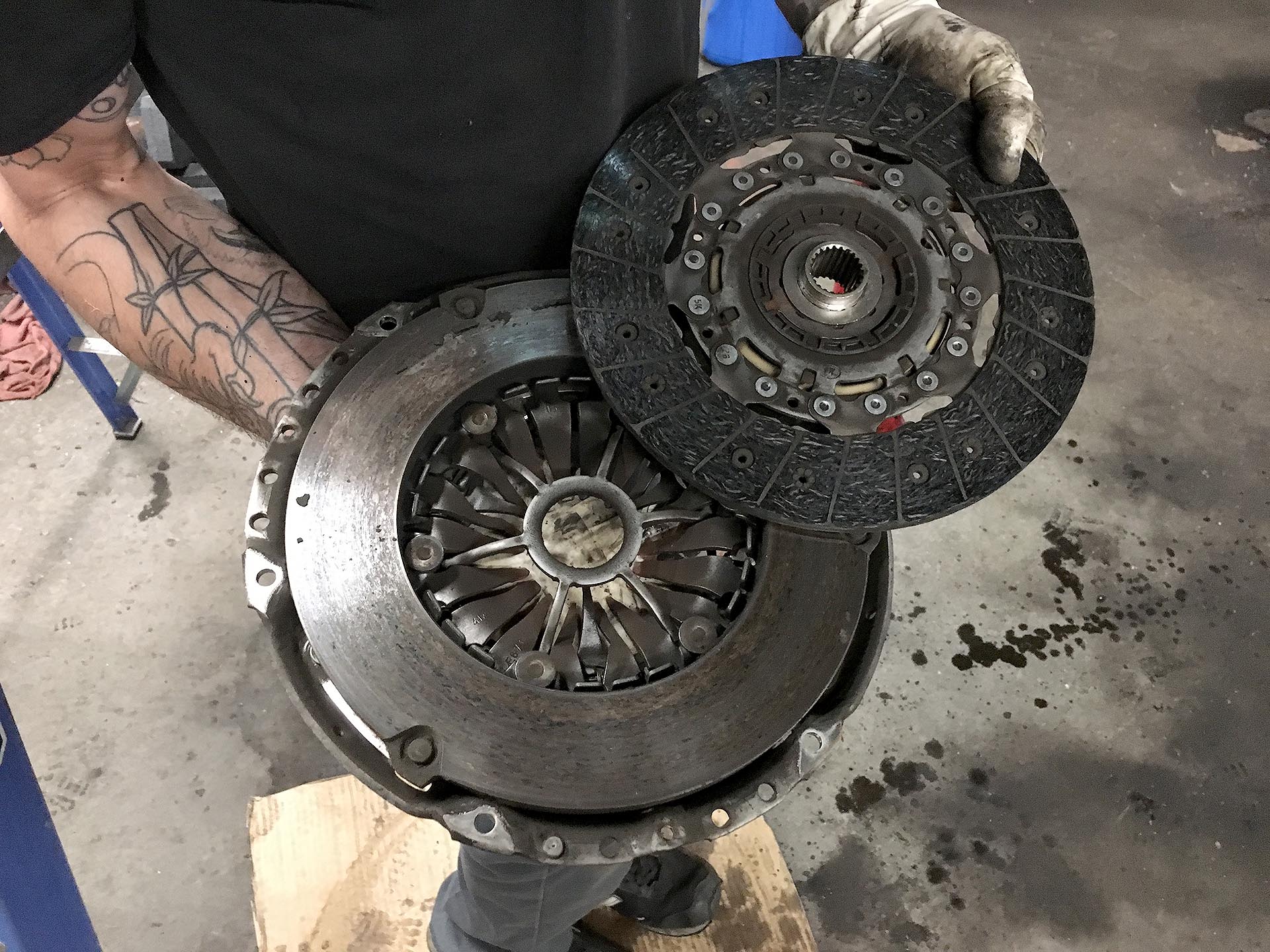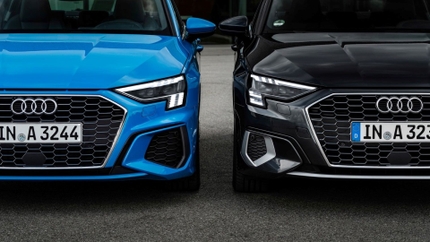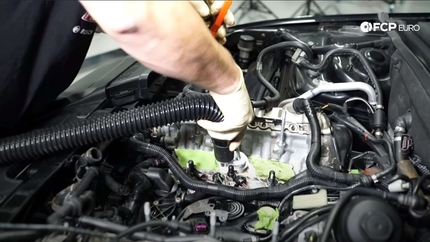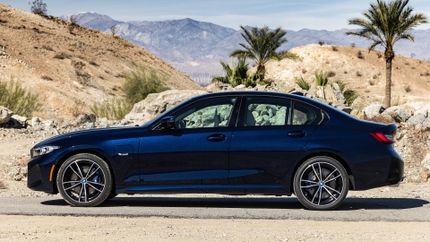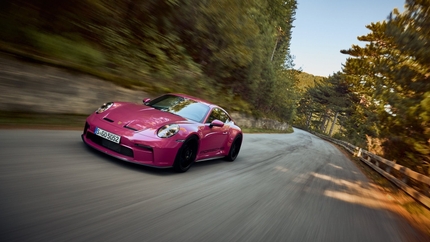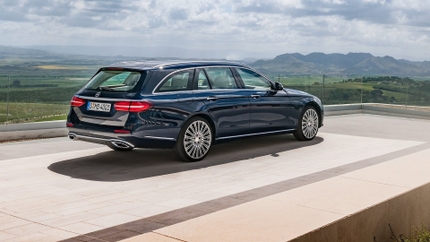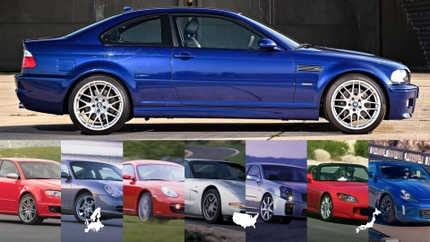- 10/05/2021
- 12 Min Read
- By: Nathan Brown
The Definitive Guide To Audi VW 6-Speed Manual Transmissions (MQ350: 02M, 02Q, & 0FB)
There is an often-repeated opinion that “real” performance cars are equipped with three pedals and a transmission that requires the driver to handle the shifting. It’s debatable whether this is the case since the ubiquitous spread of direct-shift gearboxes such as Volkswagen’s excellent DSG transmission. These have blurred the line of what an automatic is. A drive behind the wheel of a manual transmission car is undoubtedly a more involved and potentially more rewarding experience. This guide of Volkswagen's MQ350 transmissions cover the 02M transmission, 02Q transmission, and the 0FB transmission.
As customer preferences and manufacturer offerings have changed, manual transmissions have become increasingly less common, but they are very much still a staple ingredient for the Volkswagen GTI and Golf R. Manuals used to be offered as standard on nearly every entry-level Audi as well as the majority of VW’s model range, but are now trimmed to very select models, such MQB Mk7 GTI and Golf R. Both are available in either a DSG dual-clutch automatic or a 6-speed manual transmission trim level. Go onto any VW enthusiast forum or Facebook group, and the arguments of transmission superiority are both venomous and frequent. However, the 6-speed manual still wins the hearts of many current and would-be GTI or Golf R owners. So what’s the dirt on the manual transmission Golfs still rolling off the factory production line at Volkswagen? Read and learn.
Audi VW 6-Speed Manual Transmission Guide Sections |
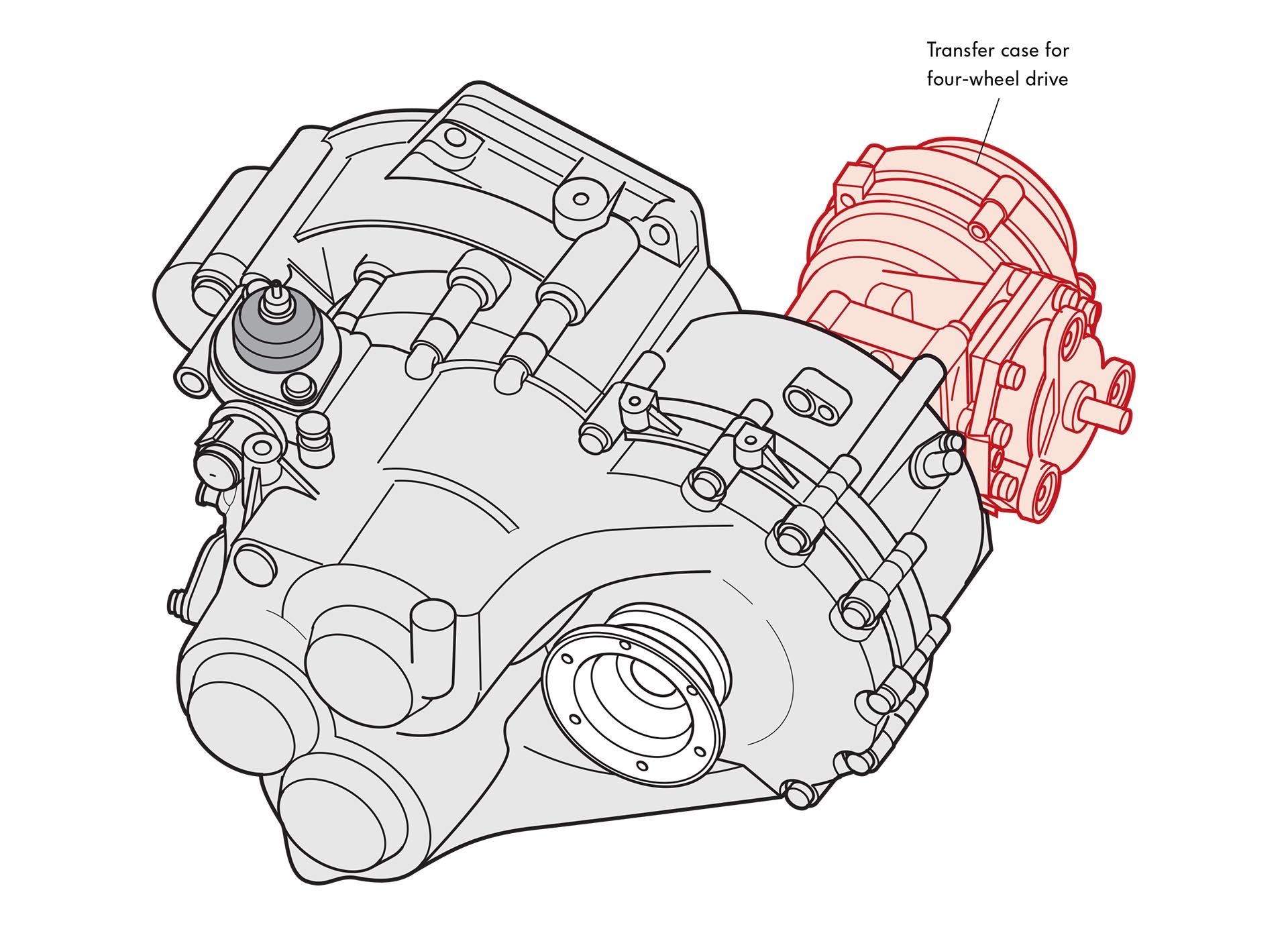
Volkswagen and Audi have had some variation of 6-speed manual transmission available in their transverse platform vehicles since around 2001. The 02M 6-speed debuted in the Mk1 Audi TT 225 Quattro before being rolled out into higher production models, much like the DSG did some years later in the Audi TT 3.2 Quattro,
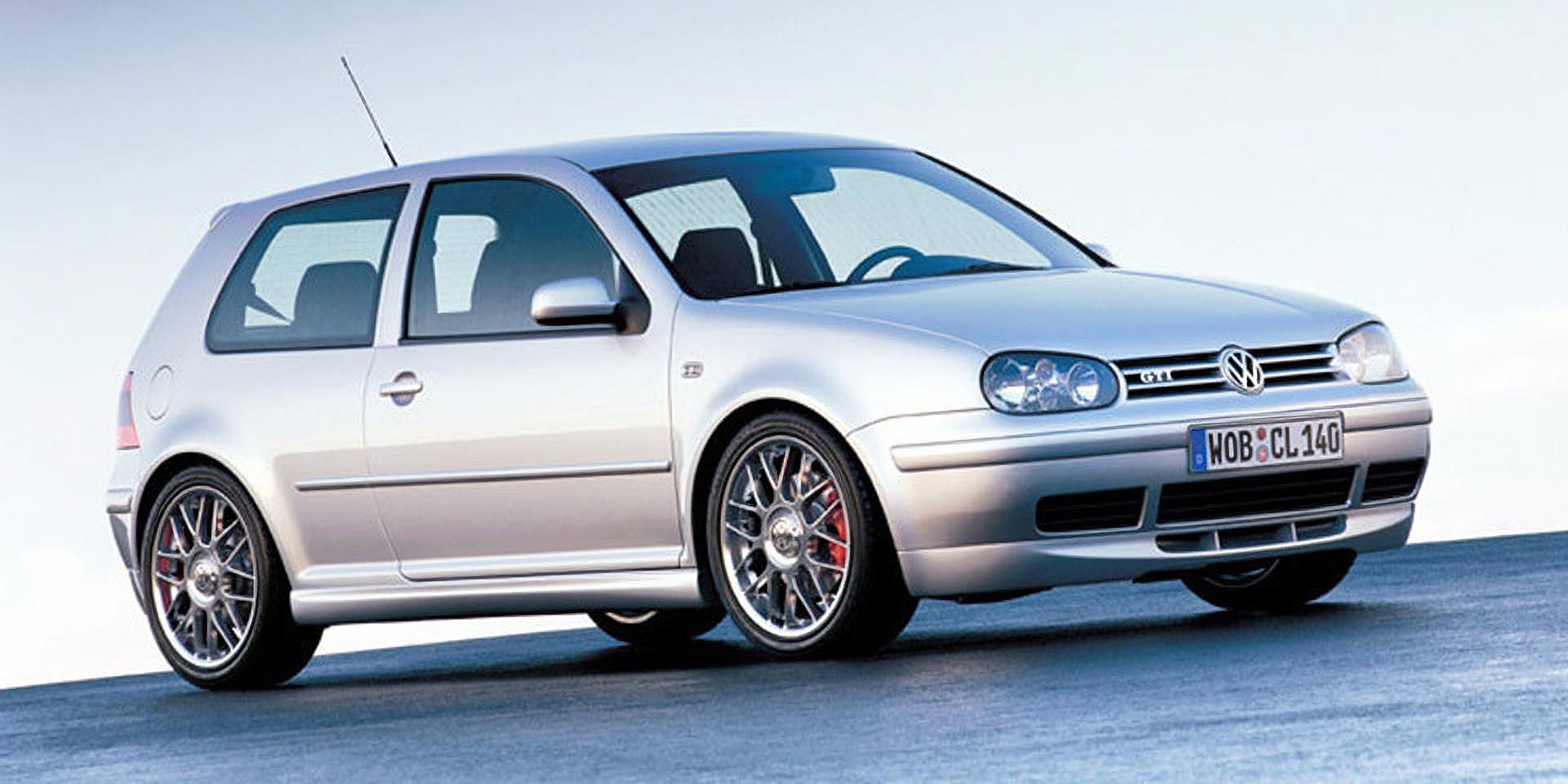
The 02M arrived for Volkswagen with the 2002 GTI and GLI 24V VR6 and GTI 337 1.8t models. With the introduction of the Mk5 PQ35 platform and direct-injected power plants in 2006, the 02Q was introduced and utilized up through the MQB platform.
For the MQB platform, the 02Q received a small update that featured various reinforcements. This update is designated as the 0FB and can be found in higher-output VW models such as the Golf R.
One of the more confusing aspects of the VW transmissions is their naming scheme. You will often hear these transmissions called either 02M, 02Q, or 0FB, you might also hear them referred to as the MQ350. Technically either way is correct, as MQ350 encompasses all three of these 6-speed manual transmissions. As a reference, MQ250 refers to the 5-speed manual transmissions found in base model cars such as the VW Golf.
Audi VW 6-speed manual details & transmission codes
VW 02M Gearbox
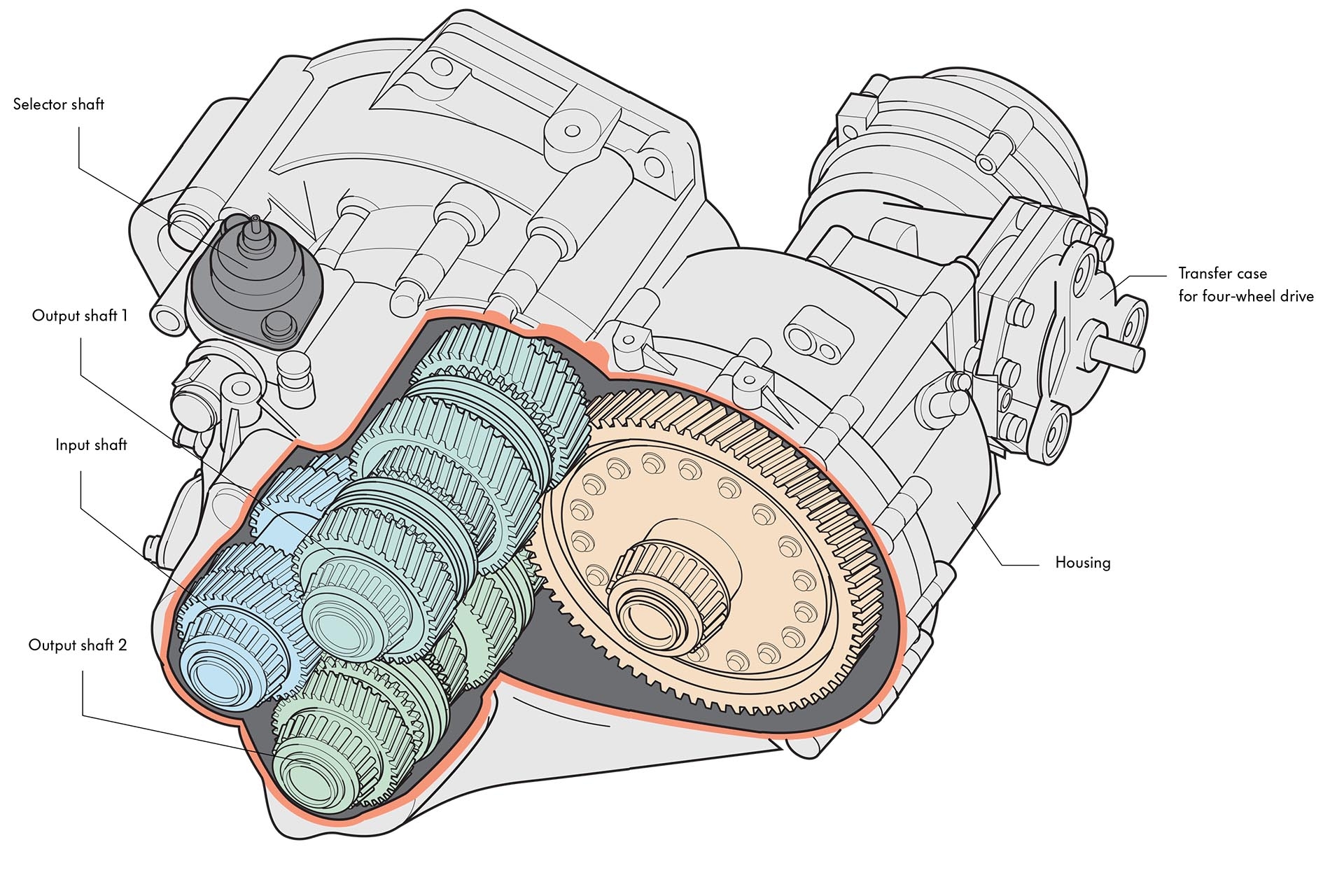
The 02M is a compact gearbox specially developed to offer sporty driving characteristics and maximum efficiency in a small space. The same location designed for a 5-speed manual could then be used for the 6-speed manual without any other changes. VW achieved this by taking a standard gearbox design, which features a single input shaft and single output shaft, and split the output shaft into two separate units. This creates a slightly taller but significantly shorter in length design.
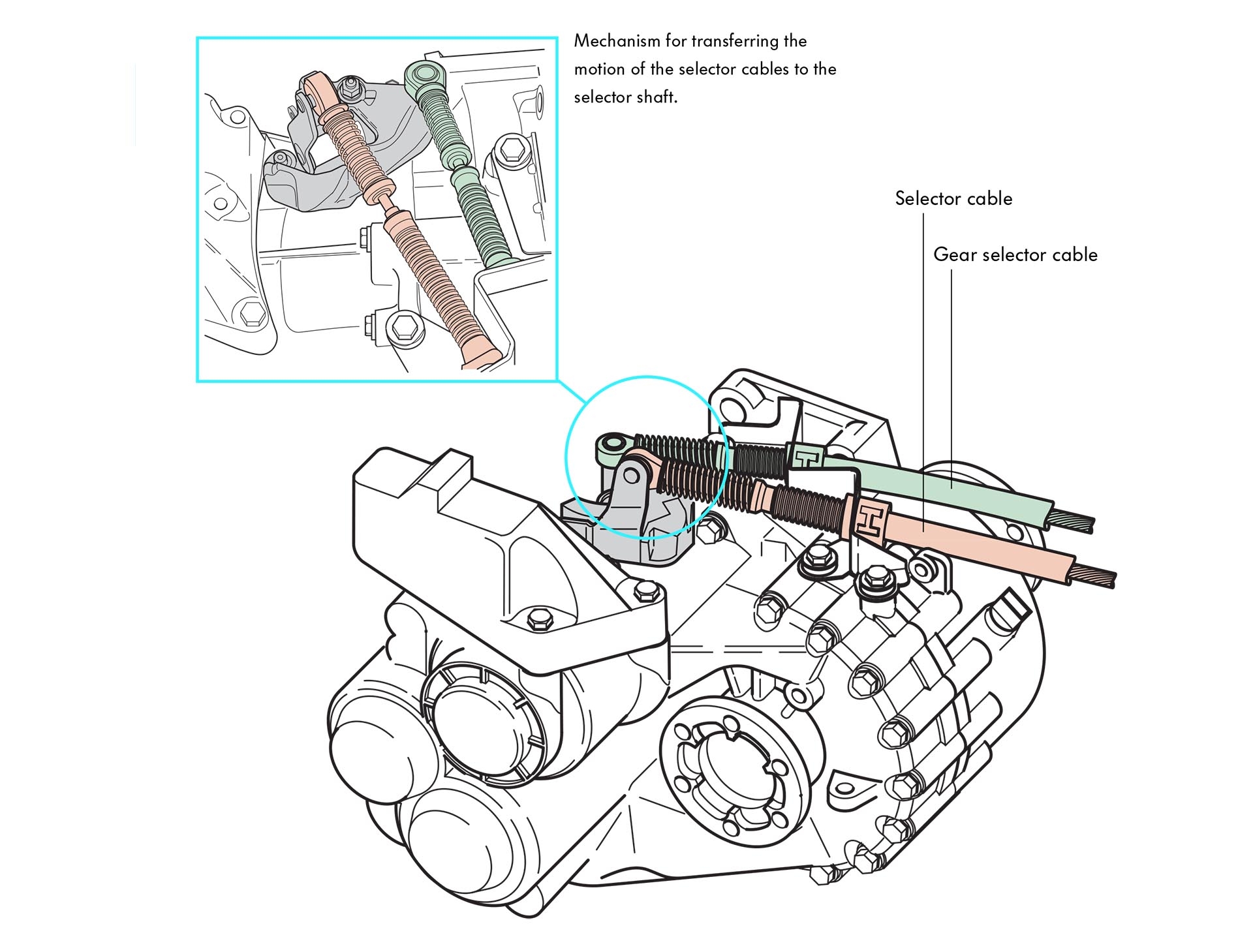
Similar to all other modern manual transmissions from VW and Audi, such as the 02A, 02J, and 01E models, the 02M is cable-shifted, and power is sent through a hydraulically-actuated clutch. While the 02M has gradually been refined since its introduction, the fundamental design and operation are unchanged since it was first introduced.

The 02M is available in both front-wheel drive and all-wheel drive variants, with the all-wheel drive models utilizing an outboard transfer case driven by the passenger side output of the final drive and differential.
The 02M uses a 240mm flywheel and clutch assembly, up from 228mm on the 5-speed 02A/02J. Flywheels are either a 6-bolt or 10-bolt design, depending on the engine. VR6 powered cars, such as the Mk4 GTI 24v VR6, GLI 24v VR6, and Mk4 R32, have a 10-bolt crank, while 4-cylinder 1.8t models such as the TT, 337 and 20th Anniversary GTI, and GLI 1.8t have a 6-bolt crank.
VW 02Q Gearbox

The 02Q is primarily the same as the 02M, with a few small changes. Mechanically, there was a change in bearing design on the input shaft from taper bearings on the 02M to ball bearings on the 02Q. Some small changes in the bellhousing design and spacing mean that a clutch and flywheel kit for an 02M transmission vehicle will not work on one for an 02Q. Despite the difference in clutch specifications, the identical clutch release bearing is used on both the 02M and 02Q.
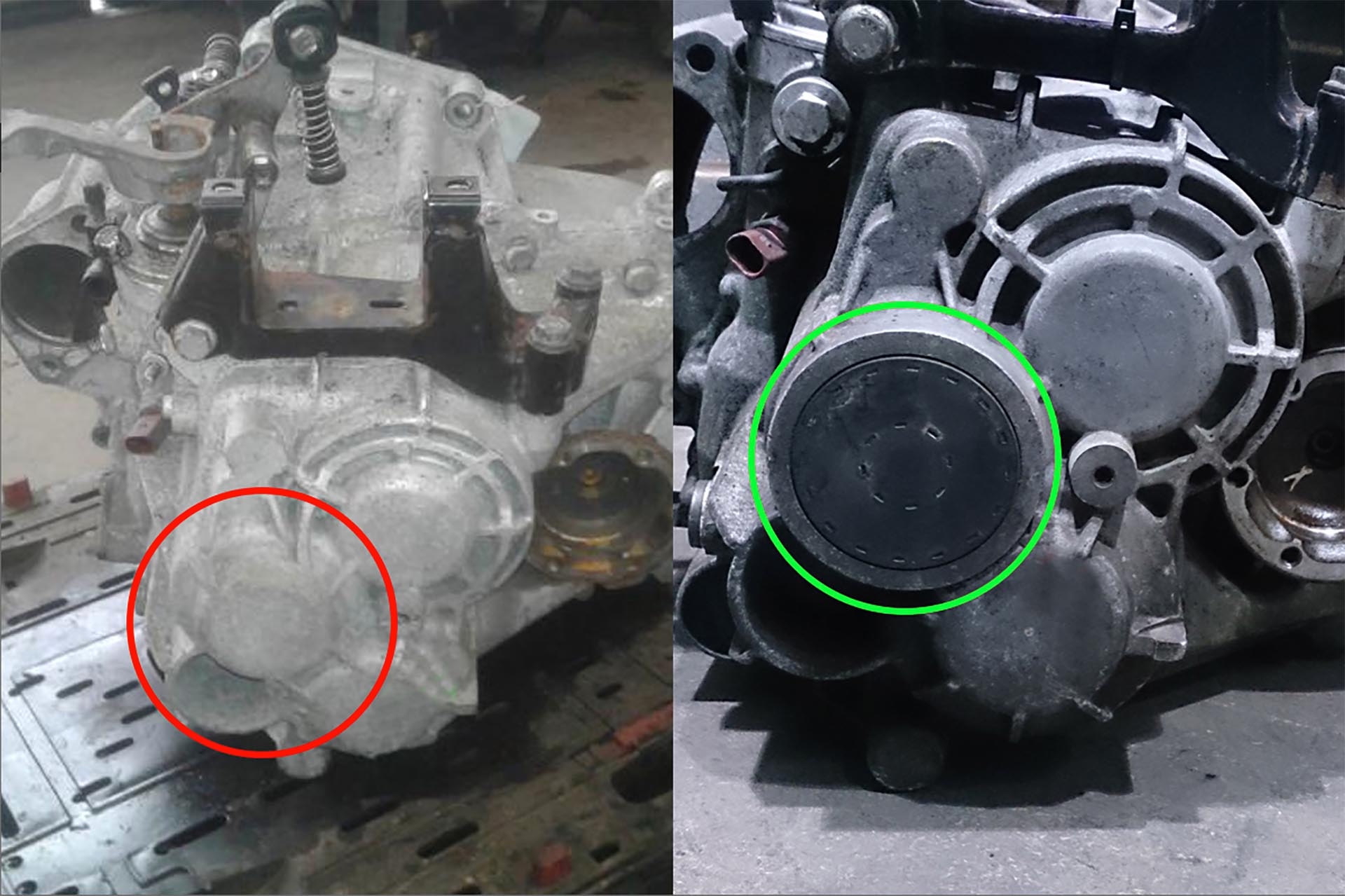 Image Credit: Darkside Developments UK
Image Credit: Darkside Developments UK
There is also the inclusion of an access window for the input shaft in the outer case half. In order to shim the input shaft on many older 02M transmissions, the transmission has to be removed, and the entire case has to be split and disassembled to make an adjustment. With the access window added in the late 02M and 02Q, the main case halves are untouched. This makes the 02Q transmission easier, faster, and more cost-effective to work on than the 02M.
The shift forks, which are the pieces inside the transmission responsible for physically engaging or disengaging gears when you move the shift lever, were also changed during the production of the 02Q gearbox. On the majority of 02M boxes and early 02Q boxes, these were multi-piece units made of steel and brass. During the production of the 02Q, the one-piece steel units from the high-performance R32 were made standard on all 02Q transmissions.
Lastly, because of vehicle electronics changes, the 02Q does away with the vehicle speed sensor in the transmission, as used in the 02M. Despite their similarities, the two transmissions are generally not considered to be interchangeable without several required changes.
VW 0FB Gearbox
The 0FB is the latest and greatest 6-speed manual transmission on offer from VW in the USA. Since Audi is no longer offering manual transmissions in their entry-level and smaller sporty models, like the A3 and TT, we only see this on the 2015 and up Golf R in the USA.
The 0FB remains more or less mechanically identical to the 02Q, even down to the same differential applying to the same gearboxes. Similarly to the 02M to 02Q, VW once again refined the bellhousing spacing and design. The same clutch and flywheel packages are generally used on the 0FB as on the 02Q, but VW adds a bonded plastic shim to the clutch release bearing to ensure complete disengagement of the clutch.
Cars equipped with the Audi VW 6-speed manual transmissions?
Volkswagen |
Audi |
|
|
Common problems of the VW/Audi 6-speed manual transmission
There are a few issues that can occur on the 6-speed manual 02M, 02Q, or MQ350 transmissions. Typically, these result from high mileage, heavy use or abuse, or related damage due to some other part failing.
Clutch
The clutch on 2.0t TSI models, roughly produced from 2009 and on, is undoubtedly the most common failure point on any of the 6-speed transmissions from VW. Early 1.8t, VR6, and FSI 2.0t cars, including the Mk6 Golf R, do not suffer from these same faults. The clutch design on 2.0t TSI powered vehicles is more or less identical, except for an 8-bolt flywheel compared to the 6-bolt 1.8t/FSI or the 10-bolt VR6 models. While the TSI clutch is typically able to cope with factory power levels, any increase in horsepower will often result in a slipping clutch. Results can vary, but it is universally accepted that the TSI clutch is a weaker design from the factory and can’t cope with anything much more than stock power levels before slipping.
VW Mk7 GTI Clutch Replacement DIY
Synchros
The most typical issue on nearly every manual transmission is worn or damaged gear synchros causing difficulty with shifting. A worn synchro set will most often result in a specific gear being hard to select or grinding when you make the change. It’s most common to see issues with second and third gear, and much more rare to see them with first, fourth, fifth, or sixth. Worn synchros can result from shifting without the clutch fully disengaged, either from not pressing the clutch pedal all the way to the floor, a mechanical clutch issue, or a hydraulic clutch issue. Short-throw shift kits, a common modification for these transmissions, can accelerate synchro wear, but they are rarely enough to cause damage themselves.
Shift forks
Most 02M and early 02Q transmission can suffer from the soft brass shift forks bending due to aggressive shifting or a missed shift. This usually comes down to use or driver error. When a shift fork bends, it feels like you are trying to force the shift lever into the wrong gate. It will move, but the transmission resists actually going into gear. Much like the gear synchros, the 1-2 and 3-4 forks are the ones that see all the damage. If you bend a shift fork, the only solution is to remove the transmission, open the case, and replace the faulty parts.
VW manufactures all-steel versions of these shift forks, and it is a common upgrade for transmissions that came with the brass versions. There is rarely any way to tell what your transmission may be equipped with other than opening it up for repair or replacement. It is not uncommon for some to even have one brass and one steel version installed from the factory. A general rule of thumb is that all 02M cars except for the R32 will probably have brass forks, and most early 02Q transmissions in the Mk5 GTI and similar models will have brass forks.
Input shaft bearing
All variations of the VW/Audi transverse 6-speed transmission can suffer from excessive play on the input shaft, resulting in excessive noise in most cases, but can sometimes lead to damage of the clutch pressure plate. As mentioned above, the 02M case must be fully torn down to adjust the bearing tolerance on the input shaft, while later 02Q and 0FB units have an access window for this work to be performed.
On a stock car, the factory dual-mass flywheel typically masks the noise associated with an input shaft with excessive play. Once converted to a single-mass flywheel kit, it is possible to hear noise at idle and to hear more noise from the differential and final drive while driving the car. It can also sound noticeably mechanical or harsh when engaging the clutch after shifting gears. Performance engine and transmission mounts make the sound even more prevalent. In nearly every instance, this noise is harmless and not an issue, but if it does bother you, re-shimming the input shaft will remove much of this noise if you have a single mass flywheel clutch kit.
Differential
Although it is not a common problem due to normal wear and tear, the open differential is a weak link for vehicles making substantially more power than stock or driven aggressively. Drag racing and burnouts take the highest toll, but very hard shifts can sometimes result in damage to the differential spider gears. Should you break a differential in a VW transaxle, it typically happens with so much force that it puts a hole in the transmission case and causes enough damage that repair is not an option.
If you plan on drag racing, road racing, or making a substantial amount of horsepower, replacing the differential with a performance limited-slip type will prevent this from happening. For any standard vehicle or ones driven more reasonably, even when modified, the differential is rarely an issue.
Finally, all transmissions are subject to normal wear and tear of use. Bearings can and will develop play and require replacement, but this is usually only noticed and addressed when the transmission is apart for more serious issues. Leaks can develop from the differential output flange seals or from the input shaft seal, but this is generally not common on modern VW transmissions. These leaks are typically only seen on very high mileage (over 200K) units or ones that haven’t seen proper service and care.
What common maintenance should be performed on VW’s 6-speed manual transmissions?
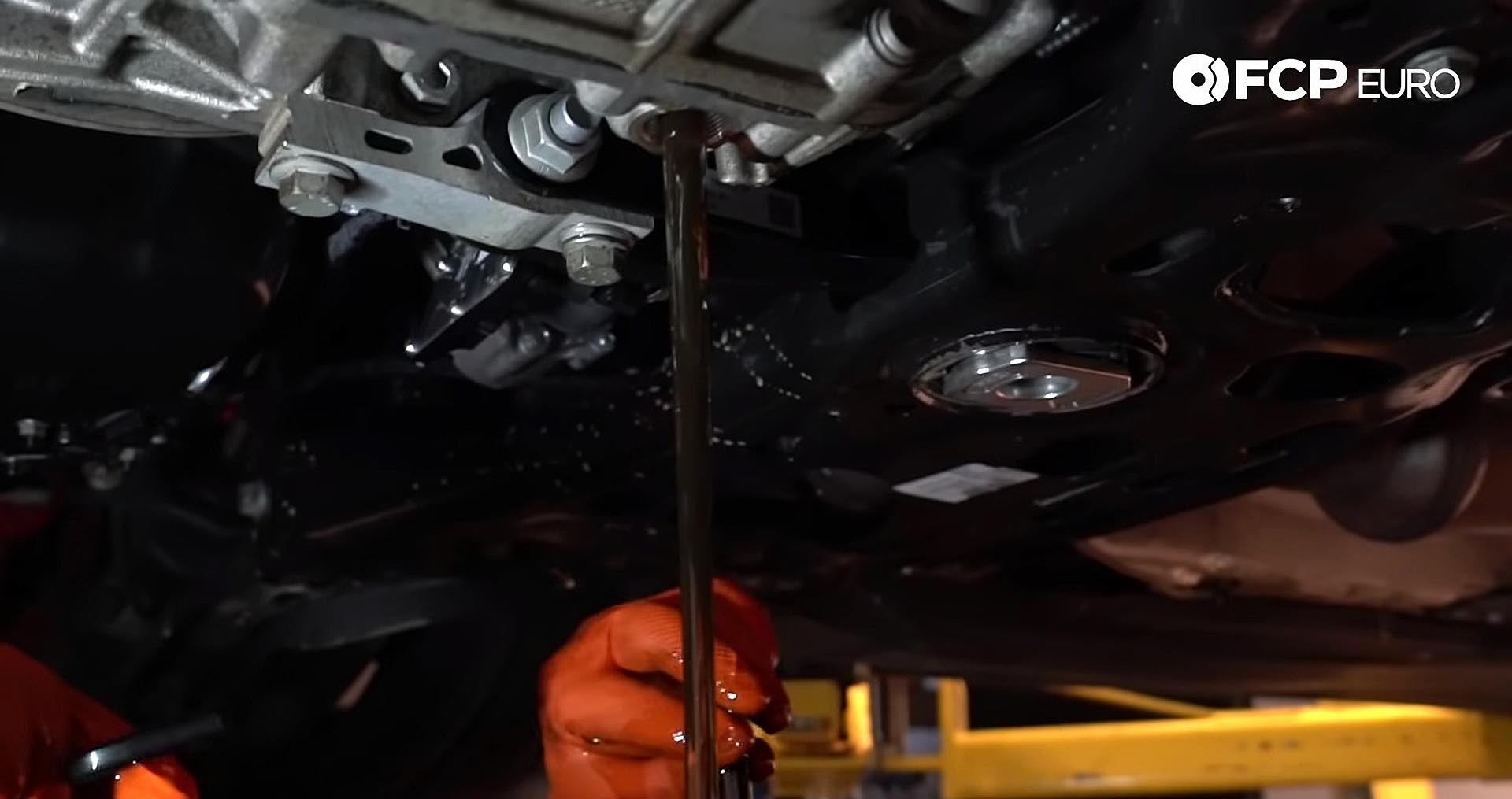
The most important service for your VW or Audi 6-speed transverse transmission is to keep the oil service up to date, with the correct specification and weight of oil.
The 02M/02Q/0FB, transmissions known as the MQ350 are listed as having a ‘lifetime’ gear oil fill from VW. Typically, this means that there is no call for service of the fluid for the duration of the warranty period. However, depending on how and where you operate your car, you will see the best results changing around 50,000 miles. Failure to service the gear oil can result in excessive or premature synchro wear, wear to the physical gears themselves, or accelerated wear to the bearings. Some shops or individuals may recommend a higher or lower interval, but 50,000 miles is the most oft-quoted mileage for the most part.
Outside of the gear oil, all of the service surrounding the 6-speed VW transmission is related to accessory components. Replacing a clutch that is slipping or not operating as it should is the most important related service component. A bad dual mass flywheel can potentially damage the bellhousing itself, in the most extreme examples. Finally, keeping the shift cables aligned and addressing any related issues will ensure smooth shifting and help avoid bent shift forks and hard shifting.
VW/Audi 6-speed manual transmission oil service information
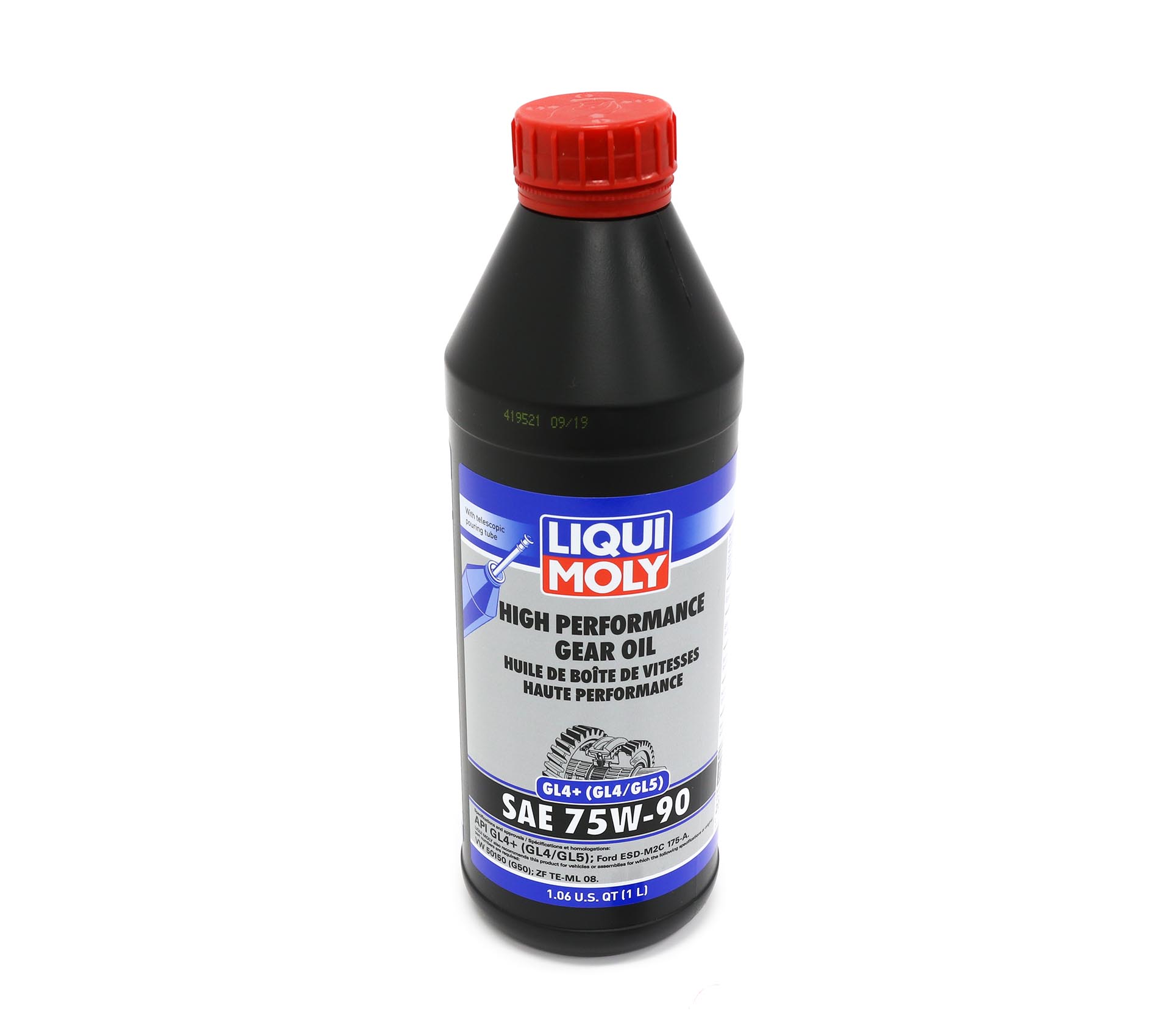
Like all transverse transmissions from Volkswagen and Audi, the family of 6-speed manuals is a transaxle design, which means the gears, synchros, bearings, and final drive components such as the differential share lubrication oil. VW specifies a GL4-spec oil for this application, which means it is approved for brass synchronization components to avoid damage or wear. GL5 oil, which is commonly found in the same weights as its GL4 cousin, is generally not recommended for synchronized transmissions as the additive package can damage more sensitive components. GL5 is designed for differential or other hypoid gear applications but not for use in a gearbox. GL5 does have higher shear and shock resistance than plain GL4, so purchasing a high-quality GL4+ oil, such as LIQUI MOLY 75w90 model 20012, ensures maximum protection without unwanted side effects.
VW specifies a straight 75W as factory fill, but both 75w80 and 75w90 are popular replacements, especially in hotter environments or performance applications. The oil service procedure is a simple drain and fill process. Depending on how warm the oil gear oil is and how long it is allowed to drain, a refill will typically take around 2.5 liters of fluid.
Servicing your 6-speed transmission will require basic hand tools and a specialized 12-point socket to remove the drain and fill plugs. A fluid transfer pump will help to make the filling process faster and easier.
Parts & tools needed to perform a VW/Audi 6-speed manual transmission oil service
- 3 liters LIQUI MOLY 75w90 model 20012
- 14mm 12-point XZN Socket
- 2 Drain/Fill plug crush ring
- Torx sockets (T25/T30)
- ¼” drive and ⅜” drive ratchet
- Fluid fill tool
VW/Audi 6-speed manual transmission performance upgrades
There are a huge number of performance upgrades available for the 6-speed manual VW and Audi transmissions. They range from simple accessories to major components, but all are designed to improve the feel, reliability, or performance of the transmission for street or track use.
Shifter Bushings
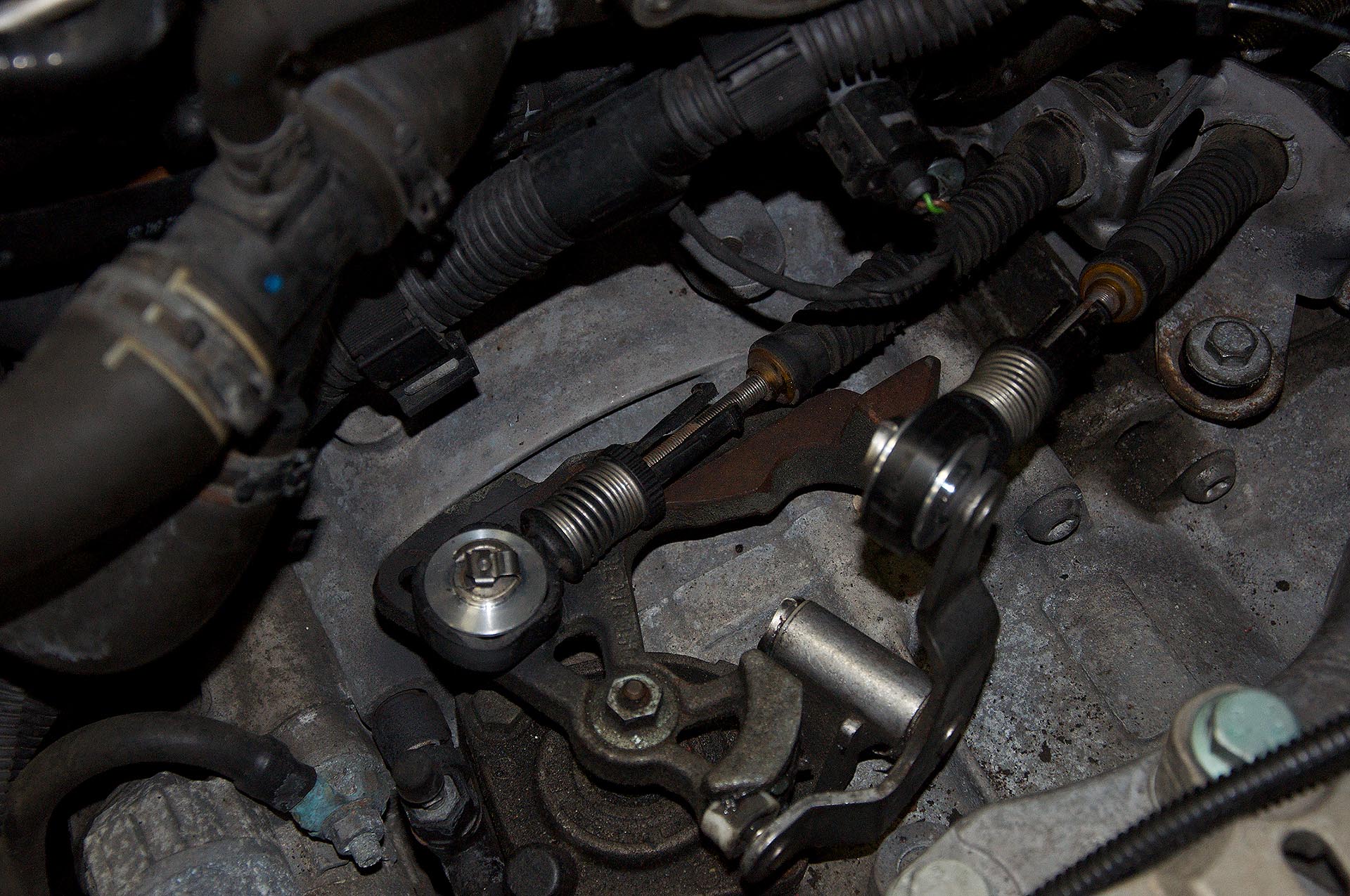
The most basic and often most beneficial upgrade is to remove the factory rubber shift cable bushings and replace them with solid brass, Delrin, or similar bushing inserts. The factory rubber bushings have a certain amount of slop designed into them, resulting in a more comfortable but more rubbery shift feel. Solid shift bushings result in a more crisp, direct, shift-feel, more akin to a Porsche GT3 or other sports cars. Replacing the related rubber shift bracket bushings furthers the direct feel.
Short Throw Shift Kit
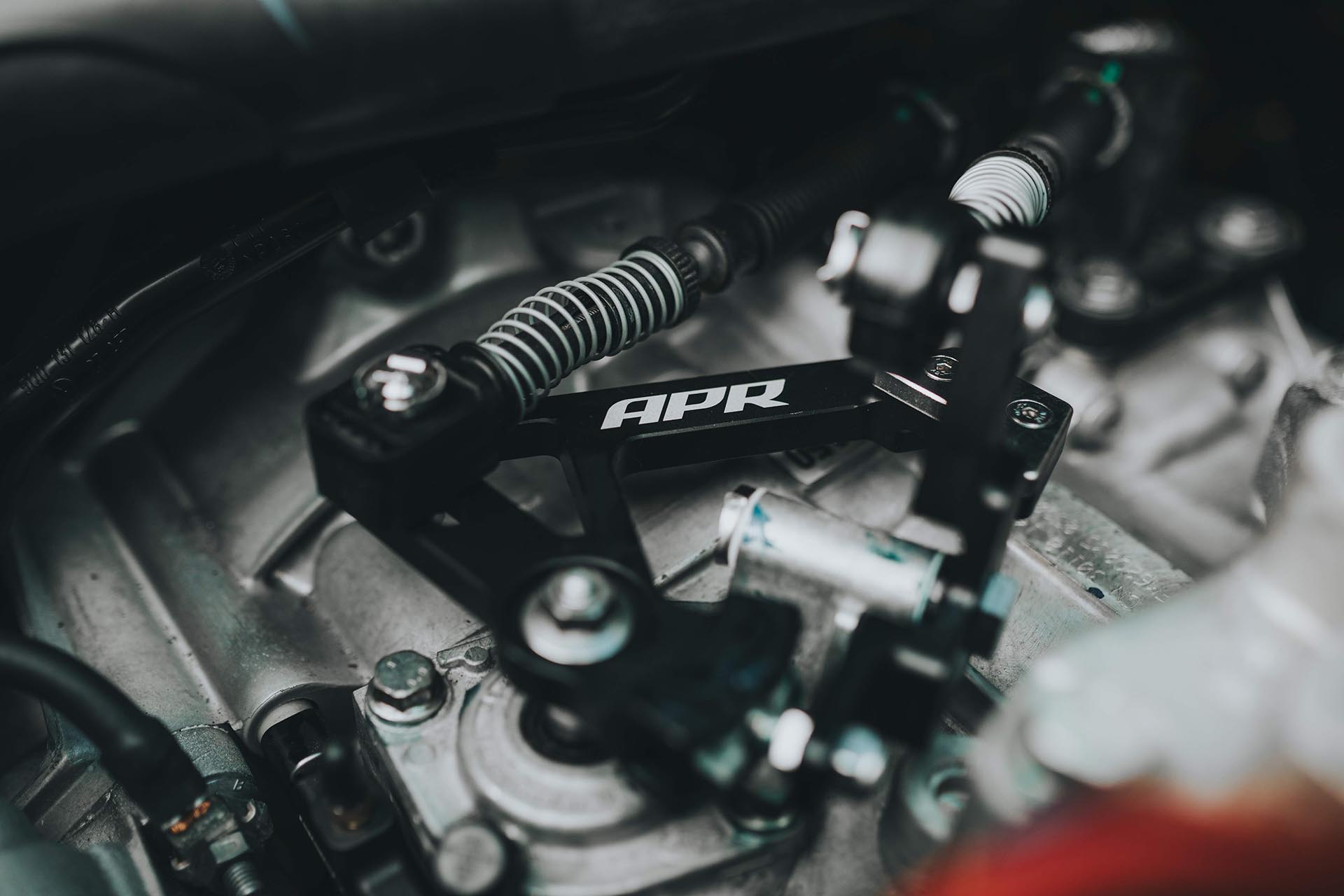
A short-throw shift kit will shorten the range of movement necessary to move gear to gear and has a side benefit of further improving the shift feel. Exact kits can vary, with some replacing only the front-to-back lever while others will replace that and the side to side lever. Most are adjustable, and some, such as the kit from APR, also includes adjustable stackable weights to change the amount of effort needed to shift. Shortening the throw too much can result in worn shift synchros, so be wary of cranking everything to the max and letting it ride.
VW/Audi Short Shifter Upgrade Options
You will need to readjust the shift cable alignment after installing or adjusting any item related to the shift cables, including shift bushings or a short-throw shifter. It’s a simple process and important to do for the best performance.
Aftermarket Clutch
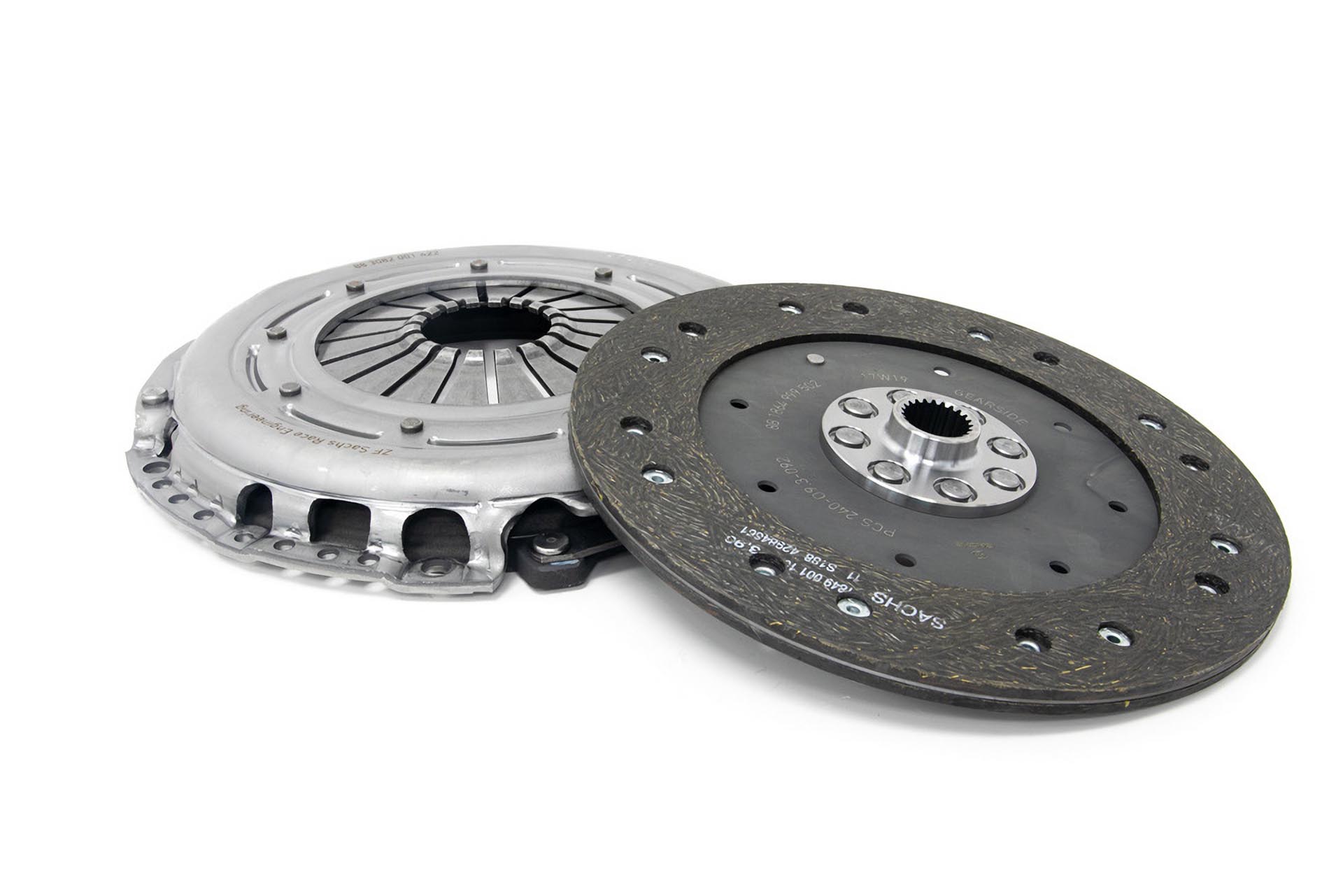
An upgraded performance clutch kit is a popular modification, especially for tuned vehicles. There are many options on the market, some of which will utilize a dual-mass flywheel for a more factory feel, and others that offer a single-mass flywheel for quicker response and more. The best kit for use with a dual-mass flywheel is undoubtedly the line of Sachs Performance clutches, the original manufacturer of many of the OEM VW and Audi clutches.
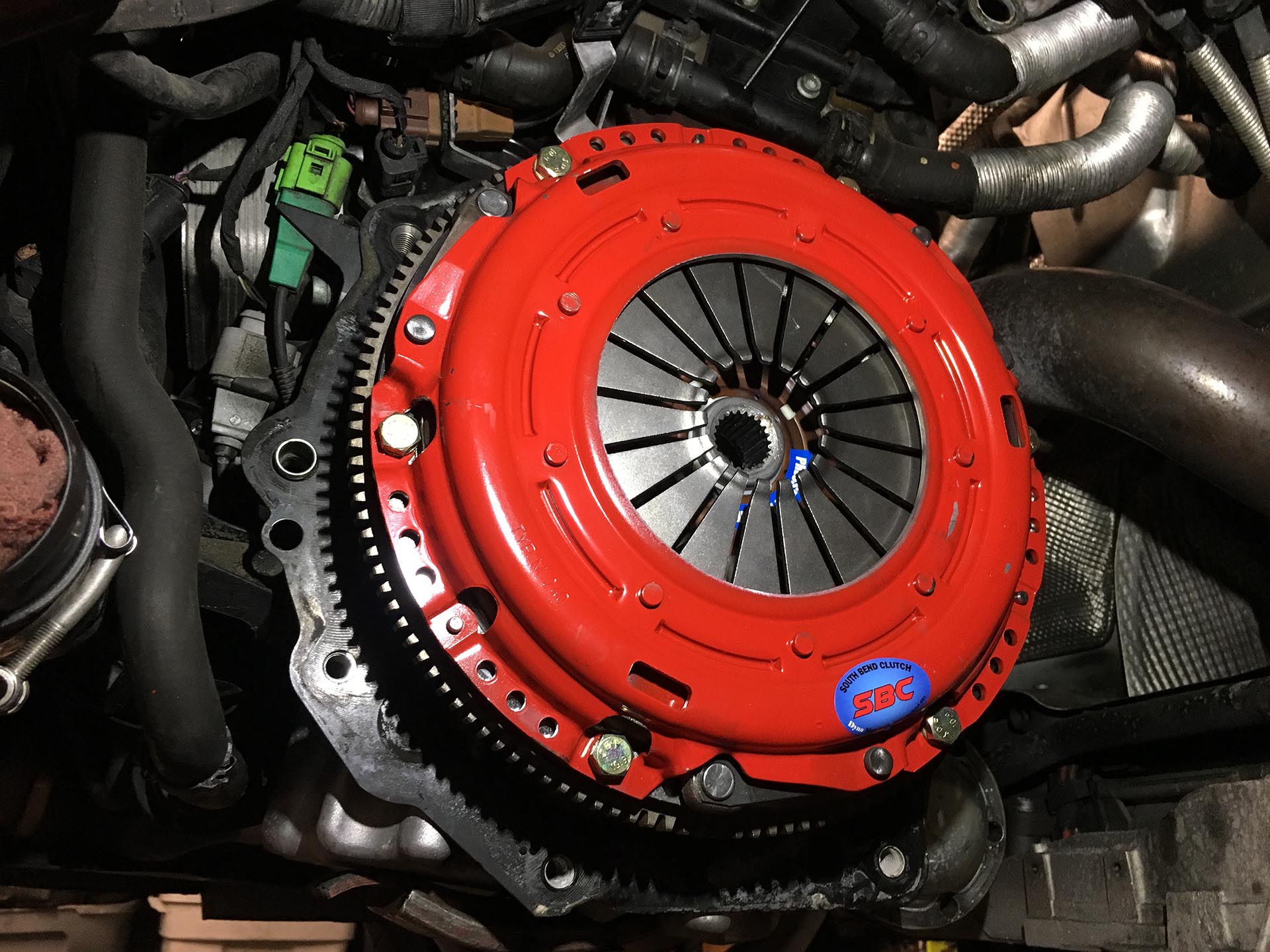
Popular single mass performance conversion kits include South Bend Clutch, Black Forest Industries, and Clutchmasters.
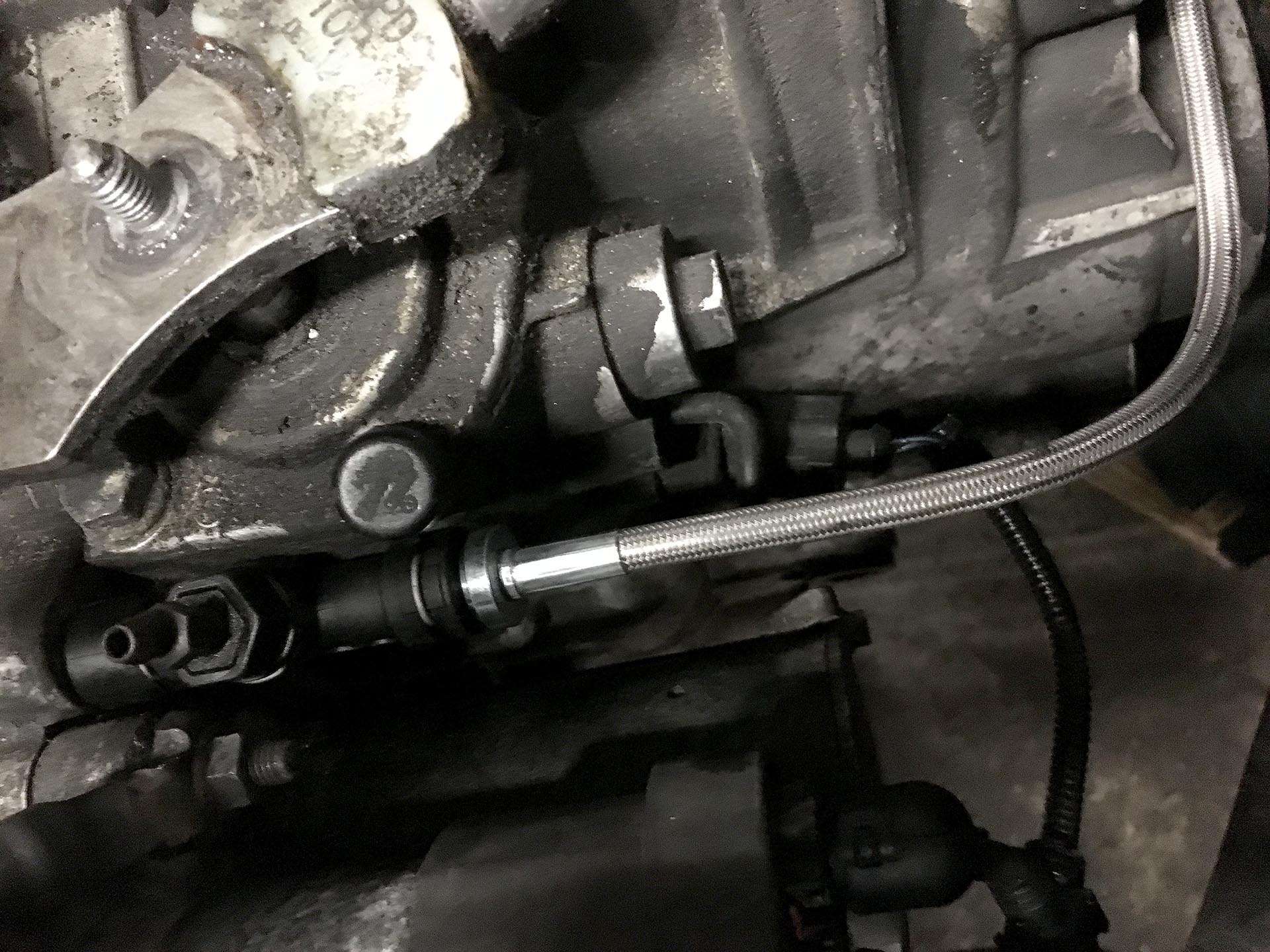
A popular and easy upgrade for cars with either a stock or aftermarket clutch is a stainless steel braided clutch line. The factory line is standard reinforced rubber and offers some flex on engagement, especially with an uprated clutch. A braided stainless steel clutch line runs from the master cylinder to the release bearing slave cylinder and provides a more positive feel with a more consistent engagement point.
Limited-Slip Differential
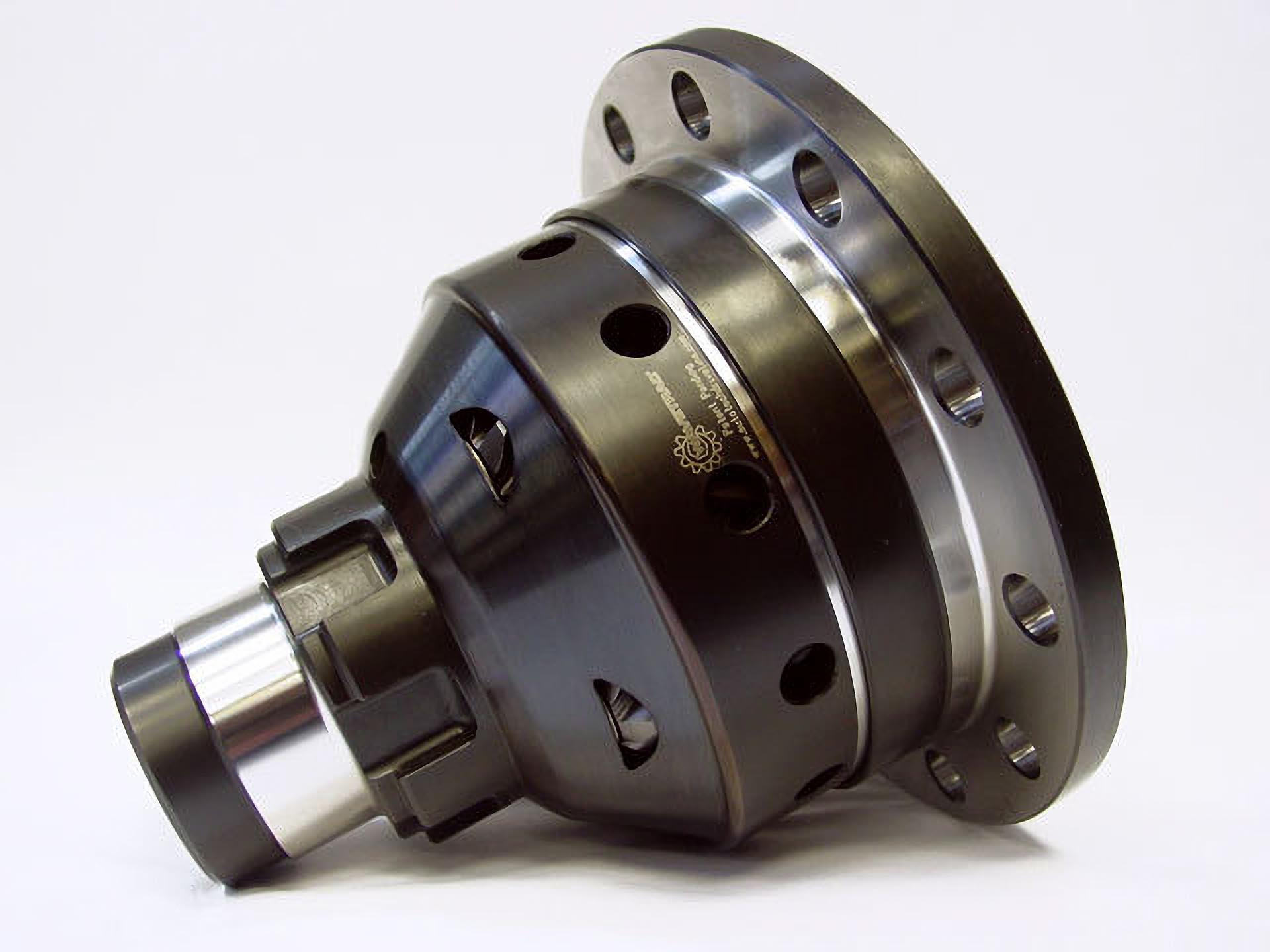 Image Credit: Wavetrac Differentials
Image Credit: Wavetrac Differentials
Replacing the factory open-type differential with a limited-slip design is the best way to improve the power handling of the VW 6-speed transmission. A limited-slip differential works to equalize the delivery of power evenly between the two front wheels. Popular brands include Wavetrac, Peloquin, and Quaife, all of which are planetary gear torque-biasing type designs. These have the advantage of having no major serviceable parts or clutch plates and are commonly regarded as being virtually indestructible when properly installed.
Torque-biasing differentials have the added benefit of transferring power from the tire with the least traction to the one with the most traction, which results in a huge positive transformation on how these front-wheel drive cars handle. A downside of a torque-biasing differential is that in a zero-traction condition, such as on ice or when a wheel is in the air, it acts similarly to an open differential and has difficulty managing power. The Wavetrac combines a planetary gear torque-biasing design with elements of a ramp-type differential to help mitigate this effect in zero grip conditions.
From there, modifications tend to become less common and more specialized in nature. Power handling of the 6-speed manuals is not as low as the 258 lb-ft rating from the factory might suggest, but there is a limitation in terms of how much power and torque you can safely put through these gearboxes. It is not at all unheard of 02M, 02Q, or 0FB transmissions easily handling 350-400 lb-ft, provided that the driver is not unnecessarily rough. There are some upgrades for drag racing and extreme power applications to help increase reliability in these less-common applications.
Hardened or straight-cut gear sets can reduce the likelihood of gears breaking or stripping teeth in extreme power applications. Other modifications aim to reinforce or fix problems related to the gearbox casting itself, such as the 4th gear input shaft support and gearbox reinforcement kit from Darkside Developments UK. All of these modifications are for torque figures well above the rated 258 lb-ft of the Volkswagen 6-speed transmissions, and not a requirement for the vast majority of these cars, even when modified with performance software, larger turbos, and other engine modifications.
Thanks to the constant refinement of the latest generation of 6-speed manual transmissions from Volkswagen, enthusiasts can still choose to have a rewarding and refined driving experience in the Mk7 GTI and Golf R. With relatively low maintenance costs and a high “smiles per gallon” ratio, a manual VW could be the best option for many enthusiasts looking to have fun behind the wheel.
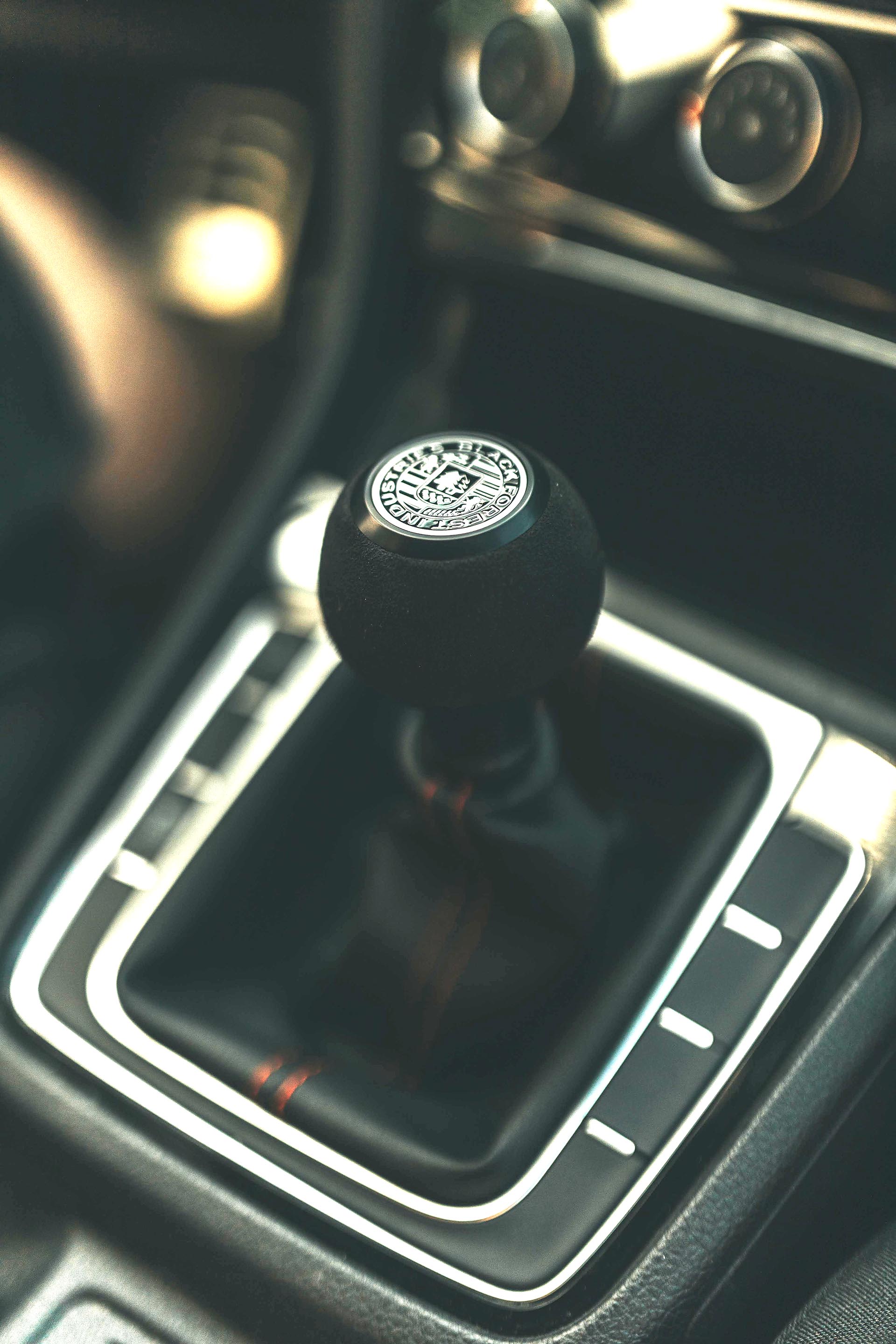
If you have any questions about the VW/Audi MQ350 6-speed transmission options or feel that any additions should be made to this article, please leave them in the comments section below.

